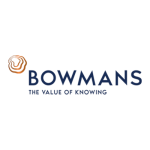Brian Kalule and Brian Manyire of Bowmans take a look at the Ugandan fintech environment how fintech may drive more business through traditional banks
T he traditional banking industry is in the throes of a revolution. Just like the hospitality, telecom and media industries, the lending sector is grappling with the phenomenon that is digital disruption. Fintech, regtech, digital ledger technology (DLT) and artificial intelligence (AI) are some of the developments that have impacted access to credit and the way financial institutions operate.
FinTech in this context refers to a new financial industry that applies technology to improve financial services. Fintech firms (fintechs) leverage innovative business models and technology which enable, enhance and disrupt the traditional financial services.
Fintechs typically seek to improve the customer experience by making it easier and more intuitive to perform financial transactions. They seek to provide more transparency in the process and better access, as advances in technology allow customers and businesses to perform financial transactions at any time of the day, anywhere in the world, across different devices, with lower operating costs and increasing process efficiency. New tools developed from technological innovations are transforming the way financial services firms operate by making processes faster, more efficient, and lowering the costs of operation. In Uganda, most fintechs are creating solutions that ease payments.
Uganda has long recognised the potential impact of e-commerce on its growing economy and enacted legislation/cyber related laws in order to provide an enabling environment for e-commerce to flourish. These include the Electronic Transactions Act 2011 and Regulations and the Electronic Signatures Act 2011 and Regulations. These laws provide for the specific rules that govern electronic contracting, execution of electronic legally binding documents, consumer protection in electronic transactions and admissibility of electronic documents into evidence, among other things. The enactment of the Data Protection and Privacy Bill into law is long overdue, however, there is hope this will happen in 2019 and help secure the data and privacy rights of the parties to e-transactions that have been pioneered by fintechs and traditional lenders. Currently, the Computer Misuse Act, 2011, is the primary piece of legislation governing the safety and security of electronic transactions and information systems. It creates several computer misuse offences, for example the unauthorised modification of computer material; contains penal provisions for unlawful access, abuse or misuse of information systems such as computers and mobile phones; and lays down mechanisms for investigation and prosecution of offences under the Act. Furthermore, the Central Bank issued the Mobile Money Guidelines, 2013, in order to regulate Mobile Money. Mobile Money has been one of the most successful payment solutions in Uganda with about $16 billion transacted through it annually.
As noted above, fintechs in Uganda have been majorly concerned with innovations around ease of payments. Consequently, a new law is in the offing. Once the National Payment System Bill comes into force, it will regulate payment systems in order to provide for the safety and efficiency of the payment system, the functions of the central bank in relation to payment systems and the establishment of a national payment systems council. The Bill will also prescribe the rules that will govern the oversight and protection of payment systems; provide for the financial collateral arrangements; regulate payment service providers and the issuance of electronic money; and provide for the oversight of payment instruments.
|
|
There is abundant opportunity for banks and fintechs to work together and leverage off each other’s strengths and grow revenues |
|
|
The emergence of fintechs has seen a reduction in the use of cash to settle payments and the use of cards has also reduced as e-wallets have proliferated. Furthermore, traditional banks have reported reduced revenues and market share in the payments space. This has led to fears in some quarters that banks and other traditional lenders could lose their business to fintechs that are providing products that serve their needs faster, more transparently and at a lower cost.
However, fintechs are not expected to run the banks out business. With the majority of the Ugandan population remaining unbanked and with limited access to credit, there is abundant opportunity for banks and fintechs to work together and leverage off each other's strengths and grow revenues. In fact, many banks are already automating their payments in partnership with fintechs. This has allowed customers to access their bank accounts online or to even do simple things such as paying utility bills. So far, collaboration between fintechs and banks has been driven by a specific product or project (for example, the launch of a new product by a bank with a fintech providing IT support or a fintech fixing a process in the bank). However, there are many other avenues for fintech development.
Several industries such as mining, real estate, aviation, agriculture and electricity may point to where opportunities exist for fintechs and banks to collaborate to provide new value because these industries are still in a nascent stage of disruption.
Further, banks may partner with companies that already have marketplaces and are offering the opportunity to go online and make purchases. E-commerce has grown in leaps and bounds, so much so that interoperability with banks and usage of API's (applications programme interfaces) has become fertile ground for partnerships between the banks and fintechs.
Another area is in trade. Around East Africa, companies are investing in technologies that allow them to digitally see their marketplaces and change product placement in real time. In Kenya, Citibank has partnered with Technoserve to digitise a supply chain. In the sales chain, there has been a producer, wholesaler, retailer and consumer, an ecosystem that may soon be rendered obsolete because a producer needs to find the final consumer in real time. In Citi's case, the bank got the small shops onto one application where the bank was able to track all their sales. The bank was able to then determine that not only is it possible to get the small businesses to digitise their financial flows, but you can also lend to them and get them to reroute product placement.
The advent of agent banking in Uganda has provided an exciting opportunity for the banks to leverage fintech and extend services to places where it is not feasible for banks to build a brick and mortar branch. Agent banking is an extension of banking services outside the conventional bank branches, where a licensed financial institution contracts a third party operator (agent), who is approved by the Central Bank, to provide permitted financial services on the bank's behalf. The Uganda Bankers Association (UBA) expects to increase the number of bank account holders from 7.4 million to 11.6 million in three years through an initiative where the UBA has partnered with three fintech companies.
There is also plenty of room for fintech development in the wealth management services and in facilitating transactions within the corporate business space. For example, matching invoices with received cash in real time has proved to be recurrent challenge faced by many large businesses. Investment in AI or other fintech has been used by some banks to resolve this issue for their customers.
The traditional bank lenders may have had their business models disrupted, but the emergence of fintech presents a host of opportunities for the banks to improve their services and grow their revenue. Fintech makes things more cost effective and faster and will enable traditional banks to reach new multitudes of the unbanked. Uganda is an emerging market, and if it is growth that the banks are looking for, there is no better place and no better time.
About the author |
||

|
|
Brian Kalule Partner, Bowmans Kampala, Uganda E: brian.kalule@bowmanslaw.com W: www.bowmanslaw.com/ lawyer/brian-kalule/ Brian Kalule is a partner in Bowmans' Kampala office and a member of the dispute resolution department. Brian is an advocate of the High Court of Uganda. His practice covers a breadth of areas in general commercial litigation, including banking, insurance, competition law and arbitration. Brian also handles the firm's information and communications technology law practice, including fintech, and advises some of the world's biggest IT companies. He is a member of the International Bar Association, where he is part of the Corporate Law and M&A Committee and the East Africa Law Society and sits on the Research and Publications Committee of the Uganda Law Society. Brian has acted as Deputy Judge at the Commercial Court of Uganda and is currently Secretary of the legal committee of the Uganda Bankers Association. Brian holds an LLB degree from Makerere University and a diploma in legal practice from the Law Development Center. |
About the author |
||

|
|
Brian Manyire Associate, Bowmans Kampala, Uganda T: +256 414 233 616 E: brian.manyire@bowmanslaw.com W: www.bowmanslaw.com/lawyer/brian-manyire/ Brian Manyire is the lead associate in the intellectual property (IP) department of Bowmans' Kampala office. He has also developed a strong practice in corporate/commercial law and in technology, media and telecommunications (TMT) law where he has specialised in the growing area of fintech law in Uganda. He is an advocate of the High Court of Uganda and a member of the Uganda Law Society and the East African Law Society. He holds a Bachelor of Laws (LLB) (Hons) from Makerere University, a post graduate diploma in legal practice (Dip LP) from the Law Development Center and a post graduate diploma in tax and revenue administration (PODITRA) from the East African School of Taxation. |

